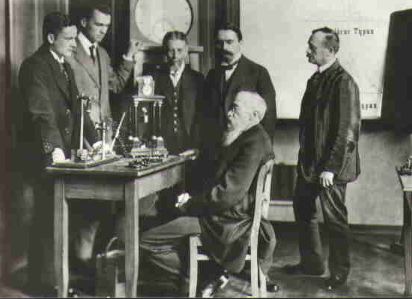Humans are complex creatures, which made a significant impact on the world that we are living in today. Each individual has unique features, including its appearance, behavior, and mental capacity. All of these factors contribute to the development of our society, which led to the advanced stage that we have in our modern world.
Interestingly, the human mind is full of incredible mysteries, which are not yet defined by science. That is why many scientists became interested in studying the complexity of the human mind, as well as behavior.
This broad study of the human mind and behavior is called psychology, which is categorized under social sciences. Most of us may have already heard or had an idea of psychology; however, it holds a much deeper definition than it seems.
In this article, we are going to look into the more in-depth definition of psychology. Furthermore, let us look into how this field of study developed throughout the years.
What is Psychology?
As mentioned earlier, psychology is a branch of social sciences devoted to the study of the mind and behavior. It includes the study of conscious and unconscious phenomena. Other focuses of psychology are the study of feeling and thought.
Scientists who devote to the science of psychology are called psychologists, wherein they aim to build knowledge of the emerging properties of brains. They also seek to gain a deeper understanding of the mental functions in individual and social behavior.
This field of study covers a wide scope of study related to the mind and behavior, which includes various topics, such as:
- Perception –is the organization, identification, and interpretation of sensory information.
- Cognition –is the mental process of acquiring knowledge through thought, experience, and senses.
- Attention – is the behavioral process of selectively concentrating on a discrete aspect of information while ignoring other perceivable information.
- Emotion –are biological states associated with the nervous system, which are related to thoughts, feelings, and behaviors.
- Intelligence –is related to various factors, including the capacity for logic, understanding, self-awareness, learning, emotional knowledge, reasoning, creativity, critical thinking, planning, and problem-solving.
- Phenomenology –is the psychological study of subjective experience.
- Motivation –is the experience of desire or aversion.
- Brain functioning –is the function of the human brain related to a wide range of topics. It covers several parts within the nervous system, which make up its entirety.
- Personality psychology – is the branch of psychology that focuses on the study of personality. It shows the different personalities present in each individual, along with their differences.
What is the origin of psychology?
Similar to other branches of science, we can trace back the origin of psychology to thousands of years ago. The earliest records of psychology studies started from ancient civilizations, including Egypt, Greece, China, India, and Persia. However, these ancient accounts show philosophical studies of psychology without any concrete scientific basis.
Some of the great Greek philosophers who contributed to the advancement of psychology were Thales, Plato, and Aristotle, wherein each of them has a significant work related to the mind. Furthermore, the Greek physician Hippocrates also made his contribution to its development when he theorized that physical factors are what cause mental disorders.
Over the years, many other scientists conducted studies related to psychology. However, a breakthrough in its advancement was made during the 19th century when several scientists made an extensive study of psychology.
One of the scientists who made a significant impact in its development was the philosopher and professor Wilhelm Wundt. His works heavily influenced modern psychology, wherein he established the first psychological laboratory in the world. This laboratory led to more in-depth studies of the human mind and behavior. He also distinguished the relation of psychology from philosophy and biology, which sparked new ideas to other scientists. Furthermore, he was the first person who ever called himself a psychologist. Because of the outstanding works of Wundt, he was often regarded as one of the founding fathers of modern psychology.
Today, psychology continues to be a significant point of study in social sciences. The application of psychology involves many fields, which include medicine, wherein psychologists study the human mind and its relation to some diseases.
